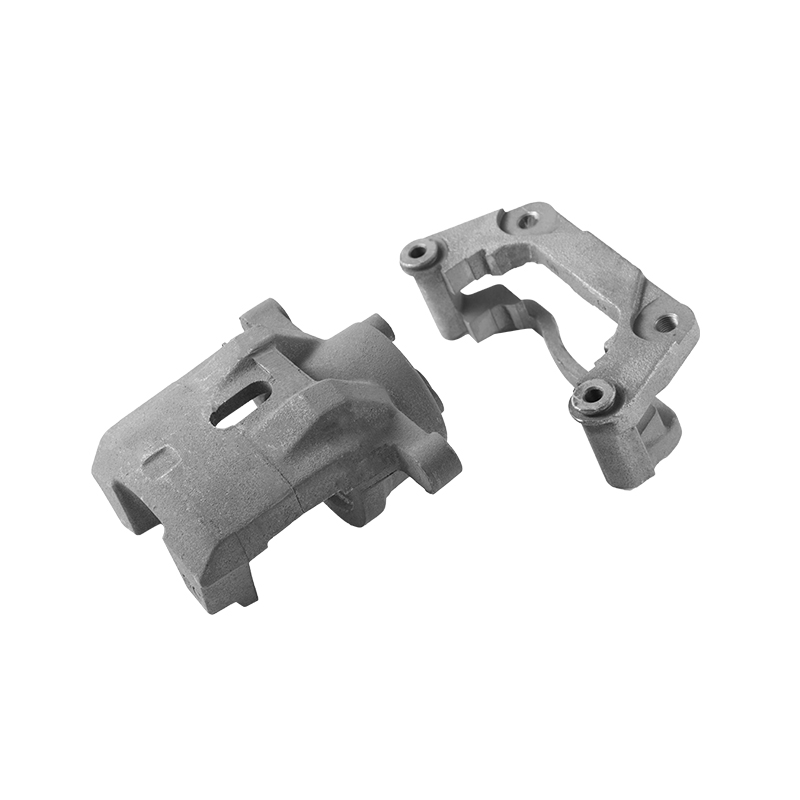The Versatility of Copper Alloy and Mechanical Cast Iron Parts in Casting Industry
Industry News-The casting industry is a vital sector in manufacturing, with copper alloy and mechanical cast iron parts being two of its most significant products. These materials are chosen for their unique properties, which make them ideal for a wide range of applications.

Copper alloy castings are valued for their excellent thermal and electrical conductivity, as well as their high corrosion resistance. These properties make them suitable for a variety of applications. Here's a closer look at their key features and uses:
1. Properties of Copper Alloy Castings
- Conductivity: Copper alloys are known for their superior electrical and thermal conductivity, making them ideal for electrical components and heat exchangers.
- Corrosion Resistance: They exhibit excellent resistance to corrosion, which is beneficial in environments where parts are exposed to moisture or chemicals.
- Ductility: The ductility of copper alloys allows for complex shapes to be cast without breaking, which is advantageous in intricate design work.
- Aesthetic Appeal: Copper and its alloys have a natural beauty that is often sought after in decorative and architectural applications.
2. Applications of Copper Alloy Castings
- Automotive Industry: Copper alloys are used in radiators, heat exchangers, and various electrical components due to their heat management capabilities.
- Electronics: In electronics, copper alloys are used for connectors, circuit boards, and other components that require good electrical conductivity.
- Plumbing and Heating Systems: Copper's resistance to corrosion and ability to conduct heat make it perfect for pipes and fittings in plumbing and heating systems.
- Aerospace: Copper alloys are used in the aerospace industry for their lightweight and strength, as well as their ability to withstand high temperatures.
3. Benefits of Copper Alloy Castings
- Sustainability: Copper is a recyclable material, making copper alloy castings an environmentally friendly choice.
- Longevity: Due to their corrosion resistance, copper alloy castings have a long service life, reducing the need for replacements.
- Versatility: The ability to cast complex shapes and the wide range of available alloys make copper alloy castings versatile for many applications.
Mechanical cast iron parts are renowned for their strength and durability, making them a popular choice for heavy-duty applications. Cast iron's unique properties have solidified its place in various industries. Here’s an overview of their characteristics and uses:
1. Properties of Mechanical Cast Iron Parts Castings
- Strength: Cast iron is known for its high compressive strength, which makes it ideal for parts that need to withstand heavy loads.
- Durability: The durability of cast iron parts is unmatched, ensuring long-lasting performance in demanding environments.
- Thermal Properties: Cast iron has good heat retention properties, making it suitable for applications where heat management is critical.
- Cost-Effectiveness: The casting process for iron is relatively inexpensive, making it a cost-effective material for mass production.
2. Applications of Mechanical Cast Iron Parts Castings
- Construction: Cast iron is used in construction for items like manhole covers, pipe fittings, and machinery housings due to its strength and durability.
- Automotive: In the automotive industry, cast iron is used for engine blocks and other components that require high strength and heat resistance.
- Agriculture: Cast iron parts are found in agricultural machinery for their ability to withstand the rigors of outdoor work and heavy loads.
- Machinery: Various mechanical parts, such as gears, bearings, and housings, are made from cast iron for their strength and durability.
3. Benefits of Mechanical Cast Iron Parts Castings
- Reliability: The reliability of cast iron parts is a key factor in industries where machinery must operate continuously without failure.
- Versatility: The wide range of cast iron grades allows for customization to specific performance needs.
- Economical: The cost-effectiveness of cast iron parts makes them accessible for a broad range of applications.
- Recyclability: Like copper, cast iron is recyclable, contributing to its sustainability.
 En
En
 русский
русский Español
Español عربى
عربى Deutsch
Deutsch















